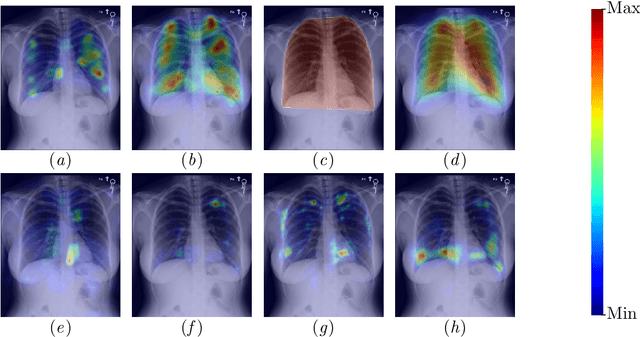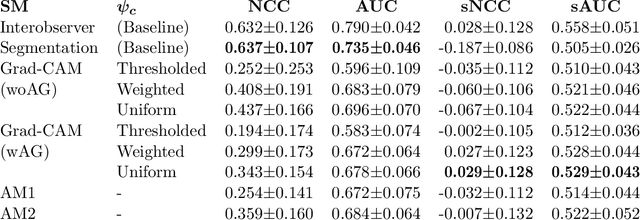Comparing radiologists' gaze and saliency maps generated by interpretability methods for chest x-rays
Paper and Code
Dec 22, 2021



The interpretability of medical image analysis models is considered a key research field. We use a dataset of eye-tracking data from five radiologists to compare the outputs of interpretability methods against the heatmaps representing where radiologists looked. We conduct a class-independent analysis of the saliency maps generated by two methods selected from the literature: Grad-CAM and attention maps from an attention-gated model. For the comparison, we use shuffled metrics, which avoid biases from fixation locations. We achieve scores comparable to an interobserver baseline in one shuffled metric, highlighting the potential of saliency maps from Grad-CAM to mimic a radiologist's attention over an image. We also divide the dataset into subsets to evaluate in which cases similarities are higher.
 Add to Chrome
Add to Chrome Add to Firefox
Add to Firefox Add to Edge
Add to Edge